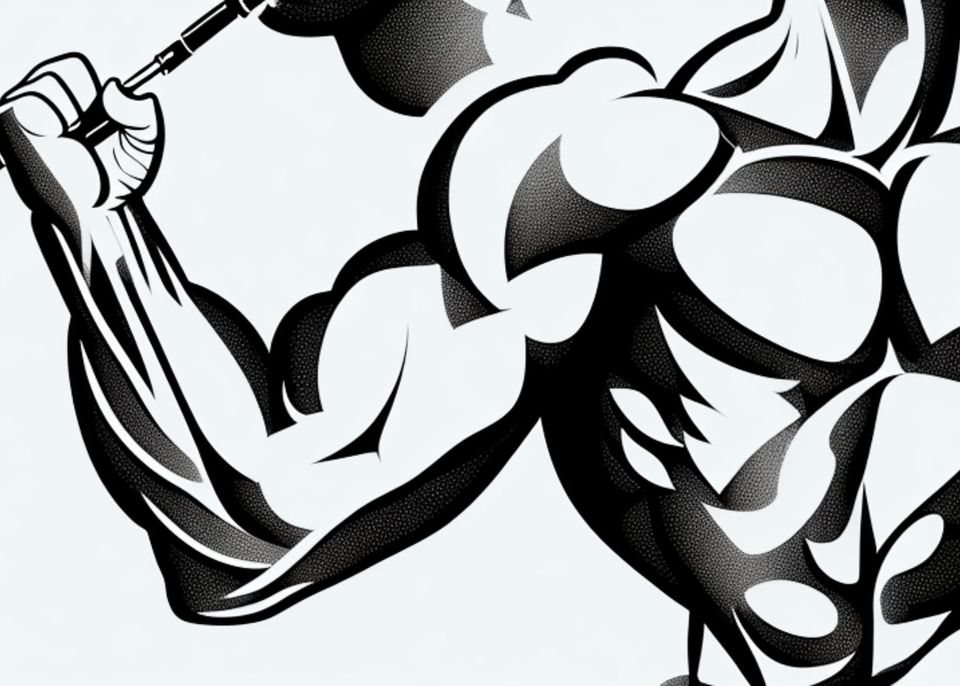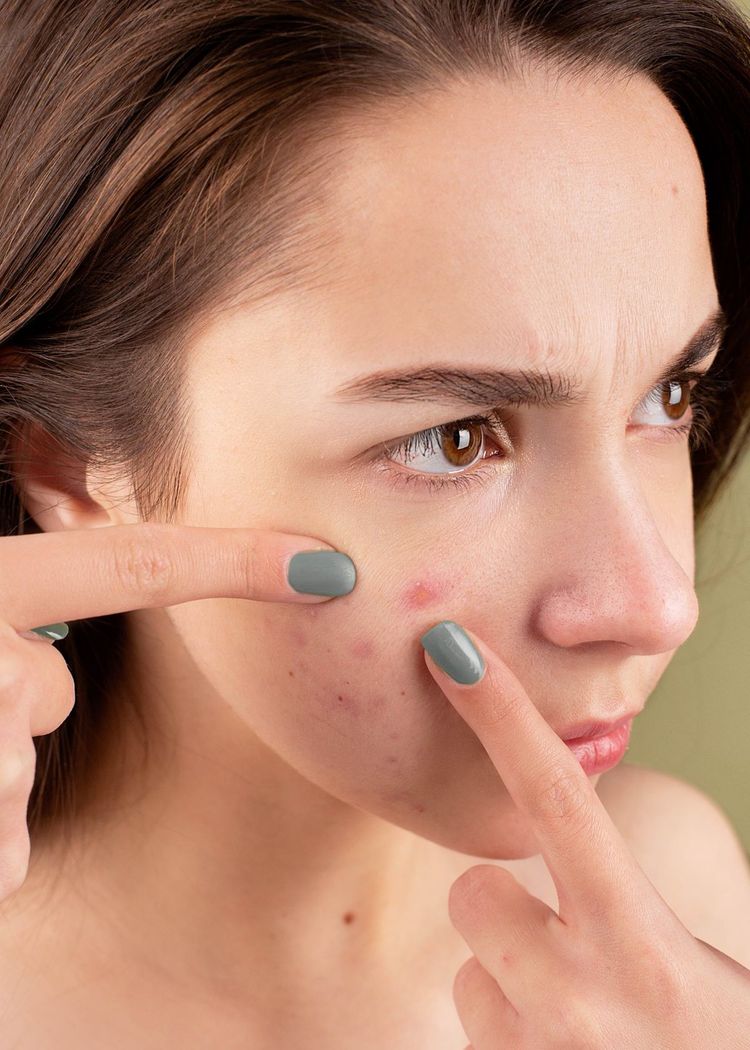Testosterone

Testosterone, the primary sex hormone in males, plays a crucial role in the development of male reproductive tissues, muscle mass, and hair growth. This powerful hormone is also present in women, albeit in smaller quantities, where it serves to maintain the health of several physiological systems. Comprehending the complexities of testosterone is vital in understanding the broad scope of its effects on both physical and mental health.
What is Testosterone
Testosterone is a hormone primarily produced by the testicles in males and, to a smaller extent, the ovaries in females. As a steroid hormone, it belongs to the androgen group and plays an integral role in male development during puberty.
In terms of molecular structure, testosterone is a steroid hormone that originates from cholesterol. The process in which testosterone is produced involves various enzymatic reactions, each working in unison to convert cholesterol into this key hormone.
During puberty, testosterone levels in males increase significantly, leading to the development of secondary sexual characteristics such as facial hair growth, deepening of the voice, and muscle mass development. These changes are essential for the maturation of the male reproductive system and the establishment of male sexual characteristics.
Testosterone also plays a crucial role in maintaining overall health and well-being in both males and females. In addition to its impact on sexual development, testosterone influences bone density, muscle strength, red blood cell production, and cognitive function.
In males, testosterone is responsible for regulating sperm production, maintaining sexual function, and contributing to a healthy libido. It also affects mood, energy levels, and overall vitality.
In females, testosterone is present in much smaller quantities but is still vital for reproductive health. It contributes to maintaining bone density, muscle mass, and overall vitality. Testosterone also plays a role in sexual desire and arousal in women.
Testosterone levels can fluctuate throughout life. In males, testosterone production begins to decline gradually after the age of 30, leading to various symptoms such as reduced muscle mass, decreased libido, fatigue, and mood changes. This decline is a natural part of the aging process and is sometimes referred to as "andropause" or "male menopause."
In females, testosterone levels also decline with age, particularly after menopause. This decline can result in symptoms such as decreased bone density, reduced muscle mass, diminished libido, and changes in mood and cognitive function.
It is important to note that testosterone levels can be influenced by various factors, including lifestyle, diet, exercise, stress levels, and certain medical conditions. If you suspect you have low testosterone or are experiencing symptoms related to hormonal imbalances, it is advisable to consult with a healthcare professional for proper diagnosis and treatment options.
The Role of Testosterone in the Human Body
Testosterone, often referred to as the "male hormone," is primarily produced in the testicles in men and in the ovaries and adrenal glands in women. However, it is important to note that women produce testosterone in much smaller quantities compared to men.
One of the key functions of testosterone is its role in muscle development. Testosterone promotes the growth and repair of muscle tissue, allowing individuals to build and maintain muscle mass. This is why men, who naturally have higher levels of testosterone, tend to have a greater capacity for muscle growth and strength compared to women.
Additionally, testosterone plays a crucial role in bone health. It helps stimulate bone growth and mineralization, which is essential for maintaining strong and healthy bones. In both men and women, adequate levels of testosterone contribute to optimal bone density, reducing the risk of conditions such as osteoporosis.
Another important function of testosterone is its impact on red blood cell production. Testosterone stimulates the production of red blood cells in the bone marrow, which are responsible for carrying oxygen throughout the body. Testosterone is able to increase red cell production by increasing iron availability by reducing hepcidin levels that are responsible for iron sequestration (Cervi & Balitsky, 2017), and by regulating erythropoietin (a hormone produced by the kidneys) production. Sufficient levels of testosterone ensure proper oxygenation of tissues and organs, promoting overall health and vitality.
Furthermore, testosterone has been linked to mood regulation and cognitive functions. Studies have shown that testosterone plays a role in influencing mood, with low levels being associated with symptoms of depression and irritability. Additionally, testosterone has been found to affect cognitive functions such as memory, attention, and spatial abilities.
While testosterone is commonly associated with male sexual characteristics, it is important to recognize its significance in women as well. Although women produce testosterone in smaller amounts, it still plays a crucial role in maintaining bone and muscle mass. Furthermore, testosterone contributes to interest in sexual activity and overall sexual well-being in women.
How Testosterone Levels Change with Age
Testosterone production typically increases during puberty and begins to gradually decline after the age of 30. For many men, this decline is slow, approximately 1-2% per year. However, in some cases, men experience a much steeper reduction, contributing to conditions such as hypogonadism or 'Low T'.
As men age, the decline in testosterone levels can have various effects on their overall health and well-being. One of the most noticeable changes is a decrease in muscle mass and strength. Testosterone plays a crucial role in muscle development and maintenance, so lower levels can result in reduced muscle mass and increased difficulty in building and maintaining muscle tone.
In addition to the physical changes, declining testosterone levels can also impact cognitive function. Studies have shown a correlation between low testosterone and cognitive decline, including decreased verbal memory and decreased spatial ability. These changes can affect a person's daily life and may contribute to feelings of frustration or decreased self-confidence.
Similarly, women also experience changes in testosterone levels, particularly around menopause. During this period, the ovaries' production of testosterone begins to decline, which may lead to several health issues such as low sex drive, fatigue, and changes in mood.
Low testosterone levels in women can also result in a decrease in bone density, increasing the risk of osteoporosis and fractures. Testosterone plays a role in maintaining bone health, so a decline in its levels can have significant consequences for women's skeletal strength.
Furthermore, testosterone is involved in regulating mood and emotions in both men and women. Changes in testosterone levels can contribute to mood swings, irritability, and even depression. This hormonal imbalance can affect the quality of life and interpersonal relationships, highlighting the importance of maintaining optimal testosterone levels.
While testosterone decline is a natural part of the aging process, it is essential to monitor and address any significant changes in levels. Hormone replacement therapy, lifestyle modifications, and dietary adjustments are some of the approaches that can help manage testosterone imbalances and alleviate associated symptoms.
Exploring the Effects of Testosterone on Athletic Performance
Testosterone, a hormone primarily produced in the testicles of males and in smaller amounts in the ovaries of females, plays a significant role in athletic performance. It greatly influences muscle growth, strength, and aerobic capacity, making it a crucial factor for athletes striving to excel in their respective sports.
One of the key ways testosterone impacts athletic performance is by enhancing muscle growth. The hormone stimulates the growth of muscle fibers, leading to an increase in muscle mass and overall strength. This effect is particularly beneficial for athletes involved in power-based sports such as weightlifting, sprinting, and football.
Moreover, testosterone promotes the healing and recovery process after exercise. When athletes engage in intense physical activity, their muscles experience micro-tears, which need to be repaired for optimal performance. Testosterone aids in this repair process by facilitating protein synthesis, a critical mechanism for muscle growth. As an anabolic hormone, testosterone increases the body's ability to synthesize proteins, allowing for faster muscle recovery and growth.
In addition to its impact on muscle growth and recovery, testosterone also plays a role in improving endurance. The hormone enhances the body's aerobic capacity, which refers to its ability to utilize oxygen during prolonged exercise. Athletes with higher testosterone levels may experience increased endurance, enabling them to perform at a higher intensity for longer durations.
However, it is essential to recognize that the misuse of artificial testosterone, commonly in the form of anabolic steroids, is considered unethical and illegal in most competitive sports. While these substances may provide short-term performance enhancements, their long-term use can lead to severe health risks. Some of the potential side effects of anabolic steroid abuse include liver damage, cardiovascular problems, hormonal imbalances, and psychological disturbances.
Therefore, it is crucial for athletes to prioritize natural methods of optimizing testosterone levels, such as maintaining a healthy diet, engaging in regular exercise, and getting adequate sleep. These lifestyle factors can help athletes achieve their full potential while ensuring their long-term well-being.
The Effects of Testosterone on Sexual Functioning
Testosterone plays a crucial role in male sexual functions. It not only stimulates sexual desire but also plays a role in the production of sperm and maintaining erectile function.
In women, testosterone impacts sexual desire, arousal, and satisfaction. Though testosterone levels are significantly lower in women compared to men, its presence contributes to overall sexual health.
Low testosterone levels can lead to several conditions, such as erectile dysfunction in men and hypoactive sexual desire disorder (HSDD) in women. Therefore, maintaining balanced testosterone levels is essential for healthy sexual functioning.A.
The Benefits and Downsides of Testosterone Supplements
Testosterone supplements can be beneficial to individuals suffering from conditions that lead to low testosterone levels. These supplements can help restore energy levels, improve mood, increase muscle mass, and kickstart libido.
However, testosterone supplements should not be taken without a doctor's prescription. Misusing these supplements has numerous side effects, including heart disease, prostate enlargement, hair loss, and increased aggression. Furthermore, the body might decrease its natural testosterone production due to external supply.
In conclusion, testosterone is a central player in numerous physiological processes. From influencing physical attributes to emotional states, the impact of this hormone is extensive and multi-faceted. Recognizing its role and maintaining its balance is key to a healthier life.
Thanks for stopping by.
BestPharmaReviews.
Reference
Cervi, A. and Balistsky, A. (2017, Oct 16) Testosterone use causing erythrocytosis. Pubmed Central. National Library of Medicine. https://www.ncbi.nlm.nih.gov/pmc/articles/PMC5647167/#:~:text=Testosterone%2Dinduced%20erythrocytosis&text=In%20addition%2C%20testosterone%20increases%20erythropoiesis,hormone%20responsible%20for%20iron%20sequestration



